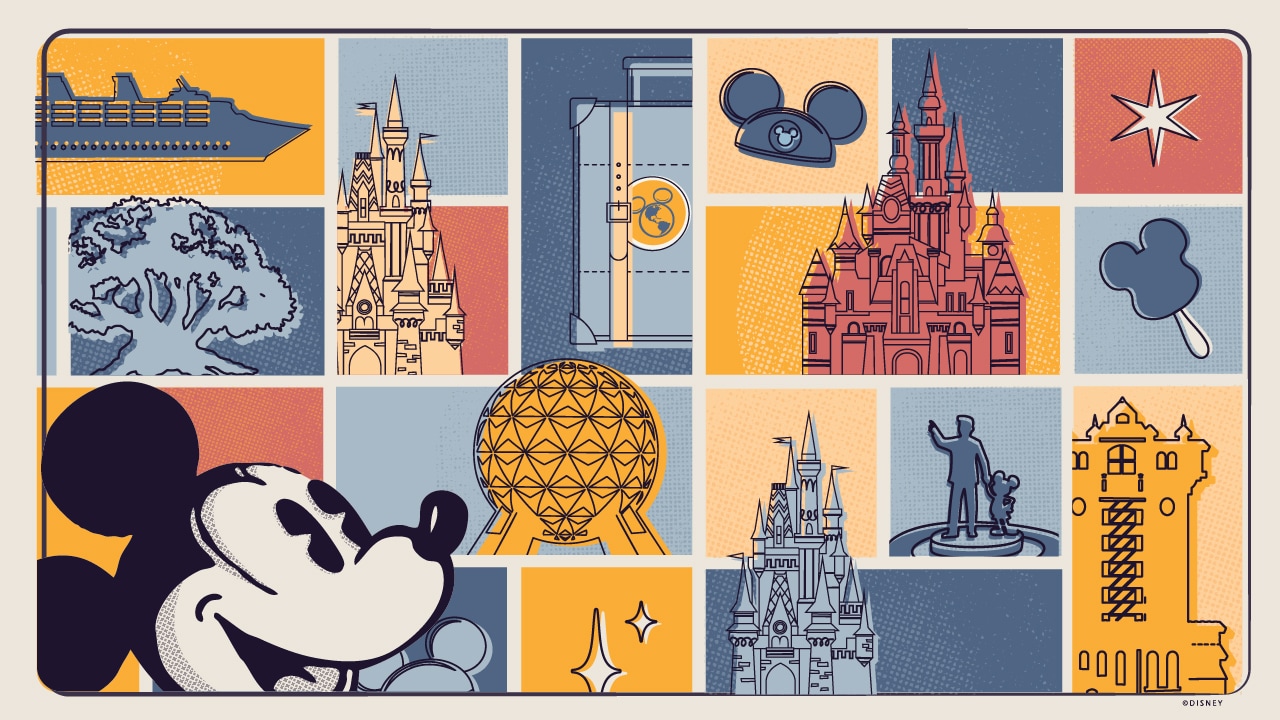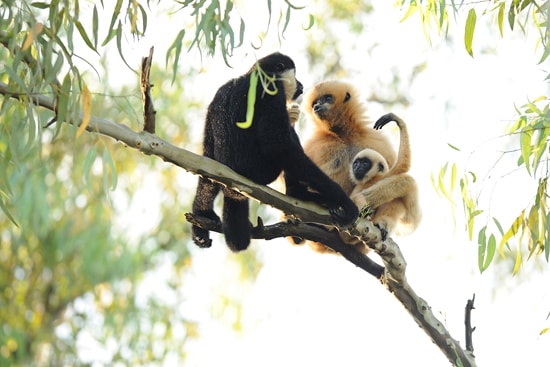With Valentine’s Day just around the corner, we thought it would be fun to talk about an animal species where the male and female share a special bond. The vast majority of animal species do not maintain monogamous relationships. Gibbons, including the white-cheeked gibbon, are one of the few species that do. Guests can see white-cheeked gibbons at Disney’s Animal Kingdom in Asia near the entrance to the Maharajah Jungle Trek.
Gibbons live in small monogamous families, consisting of a mated pair with their offspring. They are one of the few apes where the adult female is the dominant animal in the group. Grooming and playing are important social activities for gibbons, and the couples sing together. Adult pairs sing to advertise the establishment of their territory or to warn off other family groups. The gibbons’ duets help to strengthen pair bonds, and pairs can be identified by their particular song. Single adults will sing to attract a mate.
White-Cheeked Gibbon Fun Facts:
- You may think you are looking at two different kinds of apes when you see the gold and the black gibbons, but you are actually seeing a female and a male. The babies are born gold to blend in with mom and then change color around one year old. The males stay black, but the females will change back to the gold color when they are sexually mature.
- Gibbons produce offspring about once every two to three years after seven to eight months of gestation. Generally, females give birth to a single offspring. Infants have the ability to cling to their mothers immediately after birth, which allows females complete range of motion while locomoting with their offspring.
- White-cheeked gibbons can be found in the canopy of tropical rainforests of Laos, Vietnam and southern China.
- Gibbons spend their whole lives in the canopy of the forests. You can help their forest homes by purchasing shade-grown coffee.


Comments
Thank you for this wonderfully informative post! I love hanging out and watching the gibbons after finishing the Maharajah Jungle Trek!
Oh, what a sweet little family.
Comments are closed.